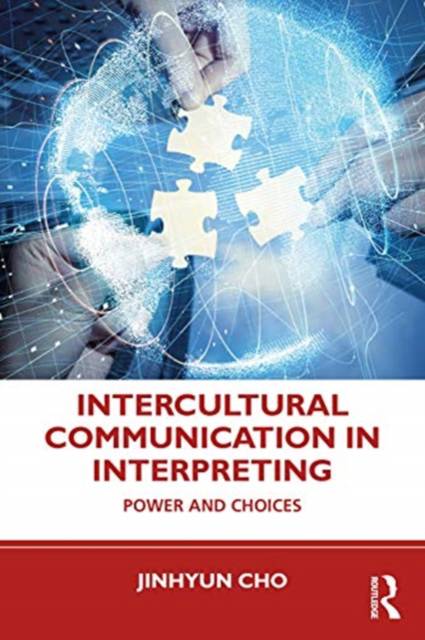
- Afhalen na 1 uur in een winkel met voorraad
- Gratis thuislevering in België vanaf € 30
- Ruim aanbod met 7 miljoen producten
- Afhalen na 1 uur in een winkel met voorraad
- Gratis thuislevering in België vanaf € 30
- Ruim aanbod met 7 miljoen producten
Omschrijving
Navigating and resolving issues in intercultural communication is an integral part of the interpreter's role on a daily basis. This book is an essential guide to the interpersonal dimensions of intercultural communication in a variety of key interpreting contexts: business, education, law, and healthcare.
Drawing on the unique perspectives of professional interpreters, Cho focuses on two key questions that remain underexamined in the field of intercultural communication: why does intercultural communication often break down, and how do individuals manage intercultural communication issues? Each chapter deals with issues pertinent to small cultural aspects of intercultural communication, including gender, ethnic migrant communities, educational cultures among migrants of Asian backgrounds, and monolingualism/monoculturalism in courtroom and refugee interview contexts. Spanning diverse geographical domains, the book highlights the impact of macro power on interpreting as well as the significance of individual agency and micro power, which can rebalance the given communicative context.
Offering a comprehensive, up-to-date, innovative, and critical perspective on intercultural communication in interpreting, this is key reading for student and professional interpreters and those on courses in language and intercultural communication.
Specificaties
Betrokkenen
- Auteur(s):
- Uitgeverij:
Inhoud
- Aantal bladzijden:
- 152
- Taal:
- Engels
Eigenschappen
- Productcode (EAN):
- 9781138610613
- Verschijningsdatum:
- 2/07/2021
- Uitvoering:
- Paperback
- Formaat:
- Trade paperback (VS)
- Afmetingen:
- 156 mm x 234 mm
- Gewicht:
- 240 g

Alleen bij Standaard Boekhandel
Beoordelingen
We publiceren alleen reviews die voldoen aan de voorwaarden voor reviews. Bekijk onze voorwaarden voor reviews.











